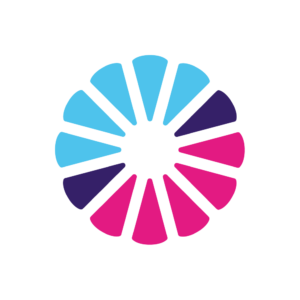45% of 18-35 Year Old NYS Residents Have Student Loan Debt
Bad News: Proposed Loan Forgiveness Program Struck Down by Supreme Court
Payments to Resume on October 1st
Good News: 12 Month Grace Period: Borrowers Will Not Be Penalized for Missing Payments
Income Driven Repayment (IDR) Plan Adjustment Extended BUT Help May Be Needed
Parachute Credit Counseling Offers FREE Assistance and Counseling, can help with IDR
Millions of Americans will soon resume paying their student loans, whether they want to or not. In a 6-3 decision on June 30th, the Supreme Court rejected the much hoped for, yet controversial, student loan forgiveness proposal.
There is hope that there may be other methods to facilitate student loan forgiveness but for now, there is much disappointment as interest will once again begin accruing on loan outstanding balances this September. Then, on October 1st, payments resume and 44 million Americans will be paying an average of $210 to $314 each month toward their loan balances (according to Wells Fargo).
In an effort to ease the transition to monthly payments, President Biden and the U.S. Department of Education stated that there will be a 12-month “on-ramp” period starting in October where “missed, partial, or late payments will not lead to negative credit reporting, default, or loans being sent to collection agencies.”
For the past three years, borrowers have had a pause in their student loan payments—with no interest accruing–due to the pandemic. This break let those with loans stay current on other bills and obligations, pay down other debt, or for some, build up their savings. The resumption of loan payments is expected to have an adverse economic impact with a slow down in overall spending and an increase in defaults and forebearances. Never in the history of the federal student loan system have over 40 million borrowers simultaneously resumed repayment after a three-year hiatus.
According to the Consumer Financial Protection Bureau (CFPB), about 20% of student loan borrowers have risk factors that indicate they could struggle when payments resume. More than 1 in 13 student loan borrowers are currently behind on other payment obligations, a rate higher than before the student loan pause started in March 2020 during the pandemic.
Student loan borrowers owe more in other debts now as well. The CFPB found that median scheduled payments on other debt obligations have increased by 24% for borrowers whose student loans will soon become due. In percentage terms, those increases are especially notable for younger borrowers—a whopping 252% increase from $65 to $229.
Income Driven Repayment (IDR) Plan/IDR Account Adjustment
Although student loan forgiveness is not imminent, there are positive options available for student loan borrowers. One of these is the the Income Driven Repayment (IDR) Plan/IDR Account Adjustment which was recently extended until December 31, 2023. Income Driven Repayment (IDR) Plans allow borrowers to make payments on their federal student loans according to a formula based on their income and family size—the payments are deliberately meant to be smaller. Ostensibly this program had been in place prior to the pandemic but there were major issues with it, resulting in few people actually receiving the proper help to enroll in this program.
Last year, the U.S. Department of Education implemented IDR Account Adjustment to help student loan borrowers benefit from the program as it was initially intended. The Department worked to remove the confusion surrounding the program, making it more accessible and available to student loan borrowers. It also conducted a one-time adjustment of IDR payments to address past inaccuracies and improved their previous subpar tracking procedures.
In final good news, there is no application required for the IDR Account Adjustment. Borrowers will automatically receive the benefits. A critical element, however, is that borrowers with non-Direct and non-government-held federal student loans need to consolidate those loans into the federal Direct consolidation program in order to benefit from the IDR Account Adjustment.
The U.S. Department of Education advises: “Borrowers who have commercially managed FFEL, Perkins, or Health Education Assistance Loan Program loans should apply for a Direct Consolidation Loan by the end of 2023 to get the full benefits of the one-time account adjustment.” Additional info available here: https://studentaid.gov/announcements-events/idr-account-adjustment
Parachute Credit Counseling—formerly known as Consumer Credit Counseling Service of Buffalo (CCCS)— recently announced that they are now offering free Student Loan Counseling throughout the eight counties of Western New York along with expert strategies for attaining financial stability.
The experienced, certified financial counselors at Parachute will help WNY residents consolidate their loans and review other potential relief options and changes to existing programs available to help borrowers reduce or eliminate their debt. Now is the time for borrowers to seek free and unbiased counseling.
Call 716-712-2060 or visit https://parachutecreditcounseling.org/services/ for more information on our Student Loan Counseling Program and other financial counseling services we provide.

